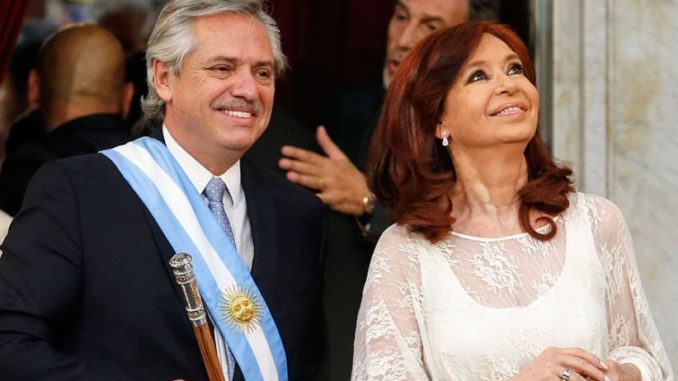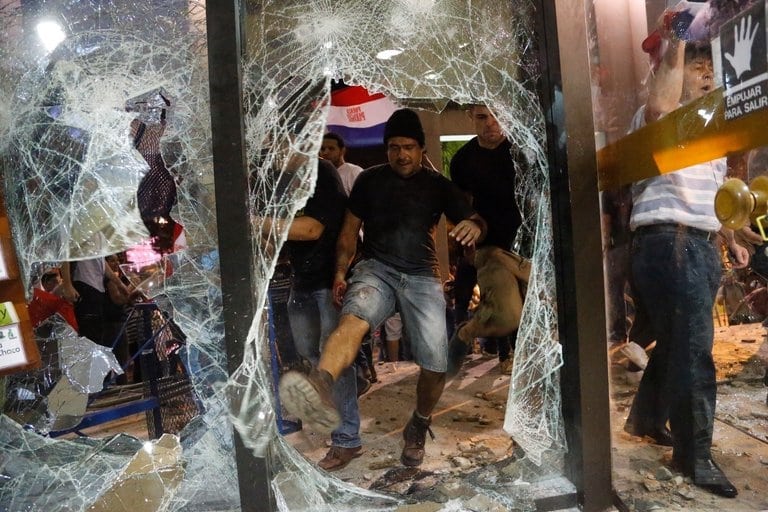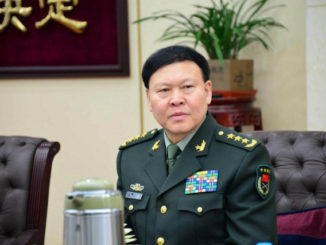
BUENOS AIRES – Argentina’s new president Alberto Fernández has said his country needs to get back on its feet before anything else after four years of inadequate management by his predecessor Mauricio Macri, as he launched a series of proposals to bounce back from recession and social fracture.
In his opening speech on Tuesday, Fernández considered it a priority to boost the economy with programmes that favour industrial development and the growth of the medium and small businesses, but without leaving out the less favored sectors. “Today more than ever, it is necessary to put Argentina on its feet as a necessary condition for it to walk again. This implies, first of all, recovering a set of social, economic and productive balances that we do not have today. It is time to leave the stunning,” he said.
“I come to summon the unity of all of Argentina in pursuit of the construction of a new social contract,” he added.
“We have learned that the weaknesses of democracies are only resolved with more democracy … to build that democratic society that we still owe ourselves,” he went on.
Hoy en esta plaza está Cristina, estoy yo, estamos todos. Unidos y decididos a poner a la Argentina de pie.#ArgentinaUnida ?? pic.twitter.com/Fpzn4cGhth
— Alberto Fernández (@alferdez) December 11, 2019
Argentina has the “will” to pay the “unsustainable” debt left by Macri, but “lacks the ability to do so,” Fernández explained. “There are no debt payments that can be sustained if the country does not grow. As simple as this. In order to pay it is necessary to grow first,” the President added as he vowed to seek a “constructive and cooperative relationship” with the International Monetary Fund (IMF), which in 2018 granted Argentina a 56.3 billion dollar loan.
Fernández also announced a Comprehensive Plan Against Famine. “We need … to put a stop to this social catastrophe. One in two girls and boys is poor in our country. Without bread there is no present or future. Without bread, life alone it suffers. Without bread there is no democracy or freedom.”
He added that “we want a state [which is] present [as a] builder of social justice, that gives air to family economies: that is why we are going to implement a massive system of non-bank loans that provide loans at low rates.”
Fernández explained his view relies on popular economy and its organised movements, cooperativism and family farming.
Regarding Argentina’s soaring unemployment, the new President explained that “the work culture is guaranteed by creating formal jobs with all the benefits of social security. That is why we will implement actions that make it easier for all holders of the supplementary social salary to be able to enter the labor world and get paid for their work.”
He elaborated: “Today unemployment affects almost 30 percent of young people and, even at higher rates, young women. There are more than 1,200,000 young people who do not study or work” and “we must guarantee the right to a first job through grants funded by the State so that young people are trained and work in companies, social organizations and the popular economy and family farming.”
Fernández also explained that “the idea of a New Contract of Social Citizenship implies joining wills and articulating the State with political forces, productive sectors, worker confederations, social movements, which include feminism, youth, environmentalism…” to which science, technology and academia are expected to join.
The President vowed to “call workers, employers and the various social expressions, for the implementation of a set of Basic Agreements of Solidarity under the Emergency, which constitute the solid foundation from which the engines of our economy are to restart.”
— Alberto Fernández (@alferdez) December 10, 2019
The former Cabinet Chief under Presidents Néstor Kirchner and Cristina Fernández de Kirchner pointed out that “we will be proposing a series of measures to restore the indispensable macro-economic, social and productive balances so that Argentina is turned on and can walk again.”
Fernández admitted “we know that we will be traveling a narrow, complex, challenging path, where there is no place for magic dogmas or for sectarian bids.”
The President described his country’s situation in figures: “The inflation we currently have is the highest in the last 28 years. Since 1991, Argentina had no inflation above 50 percent. The unemployment rate is the highest since 2006. The value of the dollar went from nine pesos to 63 in just four years. Argentina does not stop shrinking its economy. The GDP of 2019 is the lowest in the last decade.”
Fernández went on: “Current poverty has been at the highest values since 2008. We retreated more than ten years in the fight to reduce poverty. The GDP per capita is the lowest since 2009. The foreign debt in relation to GDP is at its worst moment since 2004.”
He also described Argentina’s industry recession: “The level of industrial production today is equivalent to that of 2006” and “registered industrial employment has the level of 2009,” while “the number of companies is equivalent to the level registered in 2007: we went 12 years backwards.”
And as he went further into the figures of the industrial decline, he conceded that “we have to say it with every letters: the economy and the social fabric today are in a state of extreme fragility, as a product of this [Macri’s] adventure that led to capital flight, destroyed the industry and overwhelmed the Argentine families,” President Fernández explained.–MercoPress



